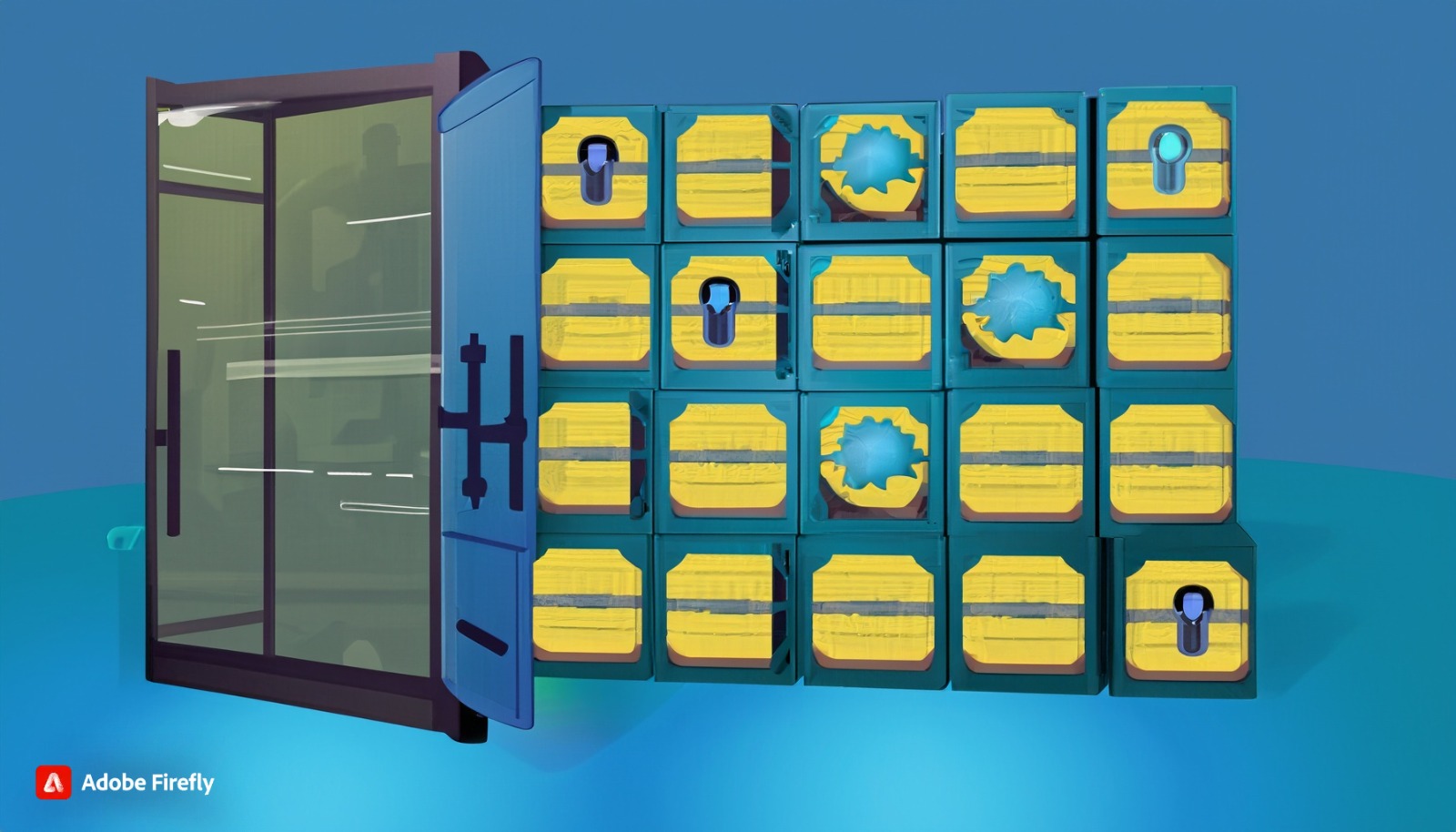Securing Secrets in Containerized Environments Best Practices and Tools
Date Created: 18 Sep 2023Share:
Containerization has today emerged as the go-to method for deploying and overseeing applications. Containers offer unparalleled portability, scalability, and efficiency, making them the favored option for contemporary DevOps teams. Nevertheless, as businesses wholeheartedly adopt containerization, the task of safeguarding confidential data and vital credentials, often referred to as secrets, within these containerized environments grows progressively complex. In this blog, we delve into the significance of fortifying secrets in containerized setups, assess the potential hazards, and explore the best practices and tools that can fortify your containers against security vulnerabilities.

Containerization has today emerged as the go-to method for deploying and overseeing applications. Containers offer unparalleled portability, scalability, and efficiency, making them the favored option for contemporary DevOps teams. Nevertheless, as businesses wholeheartedly adopt containerization, the task of safeguarding confidential data and vital credentials, often referred to as secrets, within these containerized environments grows progressively complex. In this blog, we delve into the significance of fortifying secrets in containerized setups, assess the potential hazards, and explore the best practices and tools that can fortify your containers against security vulnerabilities.
The Significance of Securing Secrets in Containers
Secrets in the context of containerized environments can encompass a wide range of sensitive information, including API keys, database passwords, cryptographic keys, and configuration files. These secrets are vital for the proper functioning of applications but can pose a significant security risk if not handled properly. Here are some reasons why securing secrets in containers is of paramount importance:
- Reducing Vulnerability:
Containers are engineered for transience and effortless replication. Inadequate protection of secrets can lead to their exposure through container images or configuration files, thereby expanding the vulnerability to potential threats.
- Ensuring Regulatory Adherence:
Numerous industries and applications are bound by stringent regulatory mandates pertaining to safeguarding sensitive data. Neglecting the proper security measures for secrets may result in violations of compliance standards and subsequent legal repercussions.
- Steering Clear of Hardcoded Secrets:
Refrain from embedding secrets directly into your container images or configuration files. Instead, opt for utilizing environment variables or employ specialized secret management tools to inject secrets dynamically during runtime.
- Exercising Access Restraint:
Adhere to the principle of least privilege (PoLP) by meticulously limiting access to secrets in accordance with designated roles and responsibilities. Implement robust access control mechanisms made available by your chosen secret management service.
- Maintain Business Continuity
Compromised secrets can disrupt applications, leading to downtime and lost revenue. Proper secret management helps maintain business continuity.
Challenges in Securing Secrets in Containerized Environments
Securing secrets in containerized environments presents unique challenges:
1. Immutable Nature of Containers
Containers are designed to be immutable, which means they should not be altered once created. This presents challenges in updating secrets without rebuilding and redeploying containers.
2. Automation and Orchestration
Container orchestration tools like Kubernetes enable automated scaling and deployment, but they also require automated secret management solutions to maintain security.
3. Environment Variables vs. Files
Secrets can be injected into containers as environment variables or mounted as files. Deciding which method to use depends on the specific use case and security requirements.
Best Practices for Enhancing Secrets Security in Containers
To tackle these challenges and fortify the security of secrets within containerized environments, consider the following recommended approaches:
- Utilize a Specialized Secret Management Service
Employ dedicated secret management solutions such as HashiCorp Vault, AWS Secrets Manager, Azure Key Vault, or Kubernetes Secrets. These services offer a secure repository for secrets, robust access control, and automated secret rotation.
- Incorporate Infrastructure as Code (IaC)
Define your container environment, including the handling of secrets, using Infrastructure as Code (IaC) tools like Terraform or AWS CloudFormation. This ensures uniform and replicable deployments.
- Eliminate Hardcoding of Secrets
Avoid embedding secrets directly into container images or configuration files. Instead, employ techniques like environment variables or dedicated secret management tools to dynamically inject secrets during runtime.
- Enforce Access Limitations
Adhere to the principle of least privilege (PoLP) by meticulously controlling access to secrets based on predefined roles and responsibilities. Implement robust access control mechanisms offered by your chosen secret management solution.
- Encrypt Communication Channels
Guarantee the encryption of communication between containers and the secret management service to safeguard secrets during transit.
- Regularly Rotate Secrets
Establish automated procedures for routinely rotating secrets. This minimizes the window of exposure in the event of a security breach.
- Implement Monitoring and Audit Mechanisms
Integrate monitoring and auditing processes to oversee secret access and modifications. These measures serve to detect any suspicious activities and maintain compliance with security standards.
Tools for Strengthening Secret Security in Container Environments
Within containerized setups, several tools are available to bolster the protection of secrets:
HashiCorp Vault: A widely recognized open-source solution for secret management. Vault offers secure secret storage, dynamic secret generation, and seamless integration with container orchestration platforms like Kubernetes.
Kubernetes Secrets: Kubernetes presents its native secret management system, enabling you to securely store and manage secrets directly within Kubernetes clusters.
Docker Secrets: Docker provides a secret management system tailored for Swarm clusters, facilitating the secure storage and retrieval of secrets within Swarm services.
AWS Secrets Manager: An AWS-managed service designed to streamline the rotation and administration of secrets within AWS environments.
Azure Key Vault: Azure Key Vault is a dedicated secret management service meticulously designed to seamlessly integrate with Azure container services.
To conclude.
Securing secrets within containerized environments stands as a paramount element in contemporary application development and deployment. By adhering to best practices and harnessing the capabilities of dedicated secret management tools, organizations can significantly diminish the risk of data breaches while upholding the confidentiality and integrity of their sensitive data. As the adoption of containers continues to soar, the investment in robust secret management strategies becomes indispensable for preserving the security and compliance of your applications.

